‘Psychological war’: World waits with Iran’s finger on the trigger
Tensions are running high across the Middle East and all eyes are on Iran for signs of its intentions, but the wait is part of the “psychological war”.
World
Don't miss out on the headlines from World. Followed categories will be added to My News.
Hezbollah leaders say they will attack Israel, with or without Iran’s support.
Israeli leaders are demanding a “pre-emptive” attack on Iran.
A week later, Iran is yet to act.
Tensions are running high across the Middle East following the July 31 assassination of Hamas chief Ismail Haniyeh and Hezbollah commander Fuad Shukr.
Israel has neither confirmed nor denied responsibility for killing Haniyeh, who had been invited to Tehran to attend the inauguration of Iran’s new president. It admits it launched the air strike that killed Shukr in a Beirut residential block.
Iran has vowed “harsh punishment” in retaliation.
Hezbollah leader Hassan Nasrallah has vowed “strong, impactful, and effective” action even as his fighters continue to lob missiles into Israel and Israeli-occupied territory.
Israel is pondering a pre-emptive attack.
“Israel should not respond to Nasrallah; Israel should eliminate Nasrallah,” proclaimed far-right Israeli Finance Minister Bezalel Smotrich.
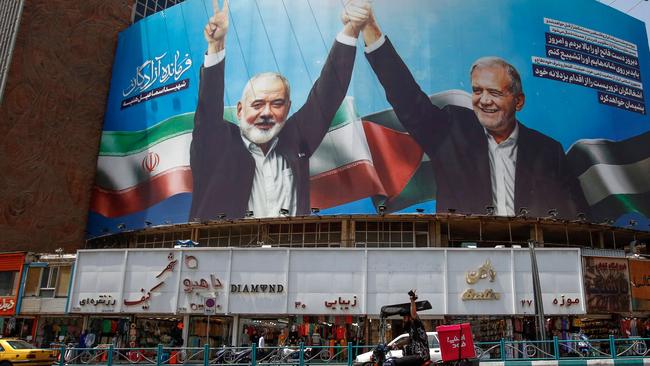
Meanwhile, all eyes are on Iran for signs of its intentions.
“ISW continues to assess that a co-ordinated large-scale drone and missile attack on Israel by Iran and its Axis of Resistance is the most likely Iranian response to Israel’s killing of senior Axis leaders,” an Institute for the Study of War Iran threat update states.
But when?
Iranian Revolutionary Guard Major General Hossein Salami has said Israel “will receive punishment in due time.”
“The fact that Israel is waiting for the response for a week is part of the punishment because it is also a psychological war that influences morale,” Hezbollah’s Nasrallah added on Wednesday.
Axis of Resistance coalition member Abdulmalik al Houthi said from Yemen that a supportive Houthi attack was “on the way” and that “the delay in the Axis’s response is only tactical, and no pressure or intimidation can dissuade from the decision to respond”.
So, why the delay?
Waiting game
Analysts say Iran has cause to consider its response carefully.
“Iranian decision-makers could calculate that the negative effects of another failed attempt to strike Israeli territory outweigh the internal and regional reputational damage Iran would experience from not attacking Israel after openly discussing the attack,” the ISW assessment states.
Iran’s massive April drone and missile assault on Israel in retaliation for the killing of one of its generals in Syria came 12 days after the event.
But almost all of its 170 drones, 30 cruise missiles and 120 ballistic missiles were shot down as they crossed other Middle Eastern countries’ airspace.
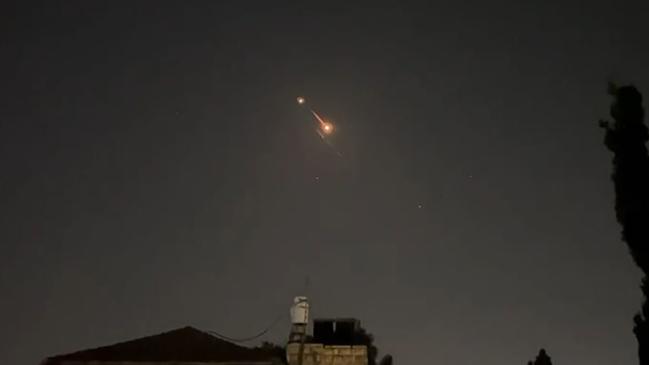
“Its response will have to be more impactful than its April 13 missile and drone attack to satisfy domestic hardliners and Iran’s strategic need to deter further Israeli attacks in its territory,” says Center for Strategic and International Studies (CSIS) security analyst Alexander Palmer.
“But Iran also wants to avoid a wider war, which leaves it with a nearly impossible task: to respond without kicking off an escalatory spiral.”
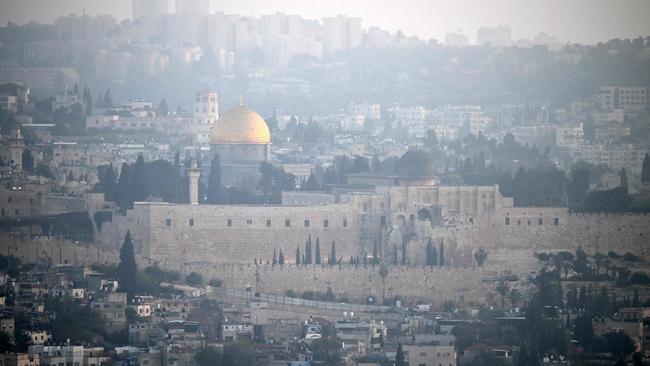
Iran now knows its attempts at targeted missile and drone strikes are likely to fail.
It also knows Israel will likely escalate again if there are significant civilian casualties.
“Iranian leaders will likely want to be confident that Iran’s munitions will penetrate Israeli air defences and strike their intended targets to re-establish deterrence before authorising a strike,” the ISW states.
But not all analysts agree Iran’s leadership will feel the need to avoid further escalation.
“In April, they talked about retaliation and restoring deterrence. This time, you’re hearing rhetoric of blood for blood,” Quincy Institute for Responsible Statecraft Trita Parisi told Foreign Policy.
“It suggests that they’re actually looking for casualties, whereas last time, the key objective was to inflict damage on Israel without causing casualties in order to deprive Israel of a pretext for further escalation.”
Severed dreams
“Israel lived in belief that it was untouchable, that it was invulnerable, that its military and technological dominance made it so safe that it didn’t have to worry about its safety, nor did it have to worry about striking a deal with the Palestinians — and that it could, every once in a while, bomb Gaza and keep this situation under control,” Parisi says.
“Not only October 7, but also the April attacks, really pierced that perception of Israeli invulnerability.”
Israel’s security council met on Thursday amid preparations to counter any retaliatory strikes.”
This latest round of tit-for-tat attacks was triggered by a missile killing 12 Syrian-Druze children in the Israel-annexed Golan Heights.
“In the internal discussions with the US, Israel stressed that the cost of another Hezbollah mishap would be heavy and that Hezbollah would pay a disproportionate price if it harmed civilians as part of its retaliation,” a senior Israeli official told the Axios news service.
This has only heightened fears of a broader war in the region.
“Prime Minister Benjamin Netanyahu has been emphatic that Israeli national security interests come first and foremost,” Ian Dudgeon writes for the Australian Institute of International Affairs (AIIA).
“In particular, he has demonstrated his willingness to take very high risks in terms of approving actions that border on war but he assesses will fall short of precipitating broader conflict.”
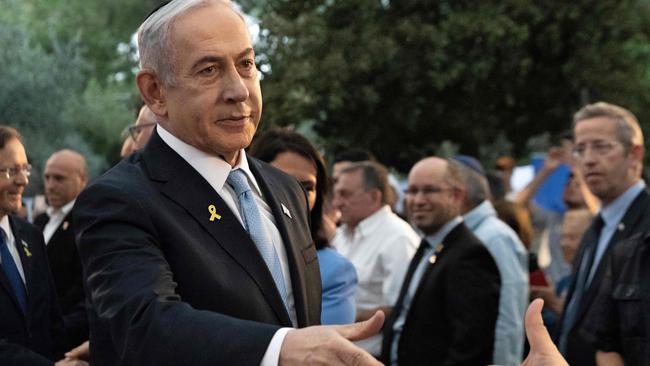
Meanwhile, Israeli opposition figures are publicly accusing Netanyahu of actively seeking a wider war.
They accuse him of putting his own political survival ahead of Israel’s survival.
“This was a profound humiliation of Tehran, and a deliberate one,” says Parisi. “But by maximising humiliation, they also maximised the likelihood that the Iranians would respond.
“I don’t think that is something that Netanyahu hoped to avoid, but rather something that he was willing to risk and perhaps even desired.”
Diplomatic balancing act
The new crisis comes just days after Iran’s new president, Masoud Pezeshkian, was appointed to office.
An invited foreign leader was killed in an Iranian diplomatic guest house while under Iranian protection.
“Iran is well aware its credibility is on the line over how it responds,” says Dudgeon. “It had no option but vow to retaliate for Heniyeh’s assassination in Tehran.”
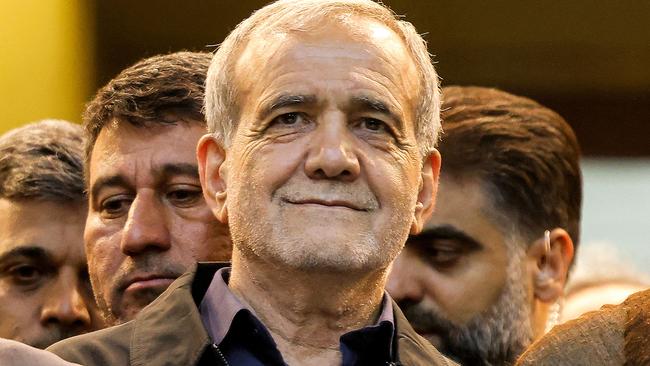
In April, Saudi Arabia, Iraq and Jordan all participated in the defence of Israel.
Their forces helped intercept the waves of Iranian drones and missiles breaching their airspace.
This time around, Iran is seeking to avert such intervention.
Iranian Acting Foreign Affairs Minister Ali Bagheri Kani met with his regional equivalents during an Organization of Islamic Cooperation (OIC) meeting in Jeddah, Saudi Arabia, earlier this week.
“Bagheri Kani may have warned Jordan and Saudi Arabia on August 8 not to defend Israel in an impending Iranian attack as they did during Iran’s April 13 drone and missile attack,” the ISW threat assessment reads.
But Iran’s hesitation also allows diplomatic efforts from other regional players and influencers.
“Preventing a wider war requires recognising the pressures Iran’s leaders are currently under,” says Palmer.
“Sending a deterrent signal while avoiding escalation will require extreme creativity, and Iranian efforts to calibrate a response will probably fail unless Tehran possesses capabilities it has not yet revealed to Israel and the world.”
Dudgeon says President Pezeshkian, like Prime Minister Netanyahu, needs a “negotiated face-saving outcome”.
“Netanyahu will resist any compromise,” Dudgeon explains. “His political credibility is at stake. He will also resist any pressure that could threaten his continuity as prime minister; loss of office could expose him to outstanding charges of corruption. The US is the only country that can influence Netanyahu to step back from his hard-line brinkmanship.”
Originally published as ‘Psychological war’: World waits with Iran’s finger on the trigger





